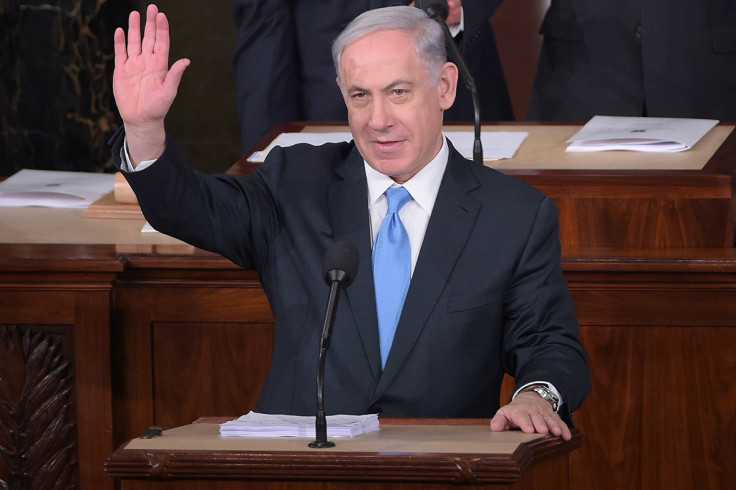Netanyahu Speech: Likud Party falls behind election rival in polls after PM's controversial speech

Israeli Prime Minister Benjamin Netanyahu's controversial Washington speech has not had the impact he had hoped for.
According to a new poll, the Likud party is two seats behind its main election rival the Zionist Union, with just over a week to go before the crucial vote.
The poll was conducted for The Jerusalem Post and Maariv News by Panels Research, immediately after Netanyahu's speech. It indicated that if Israelis went to the polls today, the opposition party led by Isaac Herzog and Tzipi Livni, would gain 24 seats in the Knesset, the Israeli parliament, compared with Likud's 22.
There is usually a big difference between what we have in the public opinion polls and on election day. It doesn't really matter what party comes first [in the polls], what matters is the possibility to form coalitions.
While Netanyahu's speech has not translated into notable domestic political gains, the most crucial factor in determining election success is based on who can form the largest coalition, with 60 seats or more needed out of the Knesset's 120.
Avraham Diskin, professor of political science at the Hebrew University in Jerusalem believes that the right-wing parties within Israel, such as economy minister Naftali Bennett's Jewish Home party and foreign minister Avigdor Lieberman's Yisrael Beiteinu party, hold almost enough to form a majority coalition government with Netanyahu's Likud.
"There is usually a big difference between what we have in the public opinion polls and on election day," he said. "It doesn't really matter what party comes first [in the polls], what matters is the possibility to form coalitions," he explained. "If the Right has a majority, it doesn't really matter if the Zionist camp is ahead even by five seats because there is a majority for a coalition led by Netanyahu."
In his speech to the US Congress, Benjamin Netanyahu warned that Iran was a "threat to the entire world" and a deal under discussion on Iran's nuclear programme could "pave Iran's path to the bomb" rather than block it.
"Backed by Iran, Assad is slaughtering Syrians. Backed by Iran, Shiite militias are rampaging through Iraq," he warned. "Backed by Iran, Houthis are seizing control of Yemen, threatening the strategic straits at the mouth of the Red Sea."
His bold rhetoric has been deemed to have damaged Israel's relationship with the U.S., with President Barack Obama reacting scathingly to the Israeli prime minister's vehement castigation of the US policy towards Iran. Mr Obama said Mr Netanyahu had offered no viable alternative.
Nancy Pelosi, the Democratic minority leader for the House of Representatives, lashed out after the Congress by the Israeli Prime Minister Benjamin Netanyahu, calling it an "insult to the intelligence of the United States".
In reaction to the speech, opposition leader Herzog also condemned the remarks as ineffective.
"There is no doubt the prime minister knows how to speak well, but the truth is that the speech, as impressive as it was, did not prevent a nuclear Iran and won't impact a deal that is being drafted – not on its content, nor on its timetable," Herzog said. "The painful truth is that after all the applause, Netanyahu is alone and Israel is isolated, and the negotiations will continue without Israel's input."
Polls regularly show the vast majority of Israelis see the US-Israel relationship as crucial for the country's security. And as Israelis prepare to vote in an election just two weeks away, the polls suggest it could be a close call.
© Copyright IBTimes 2025. All rights reserved.






















